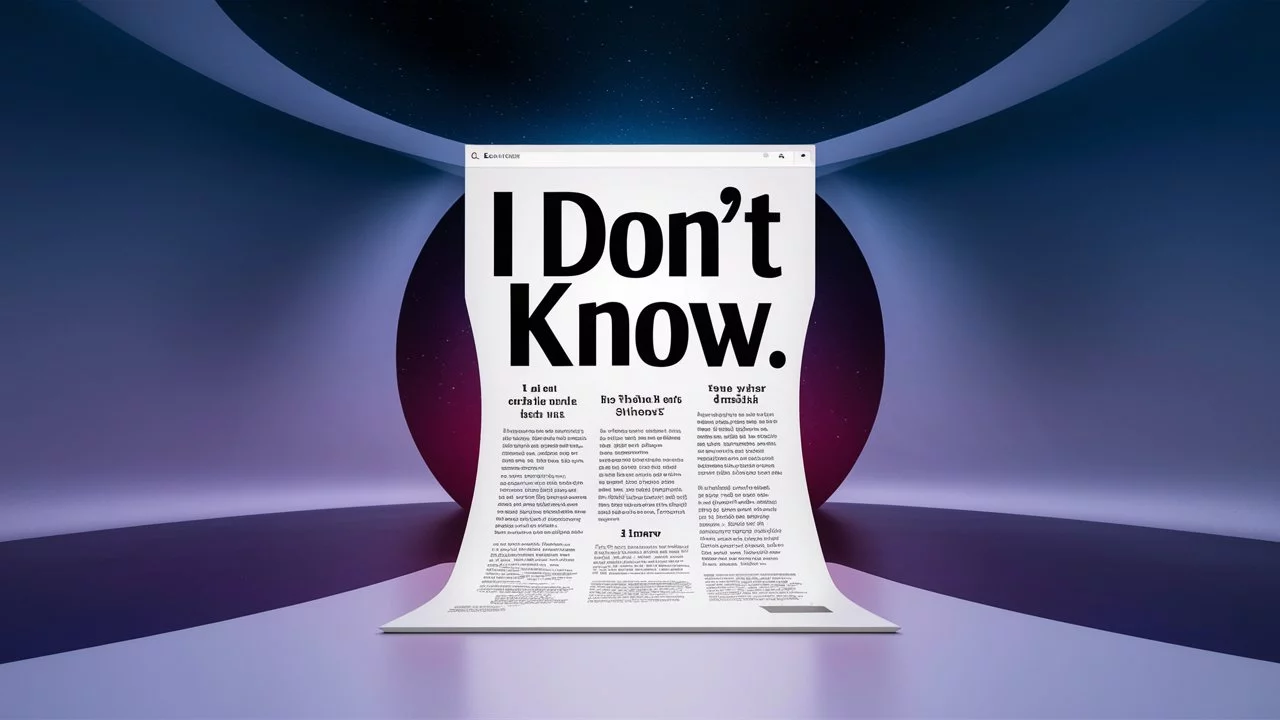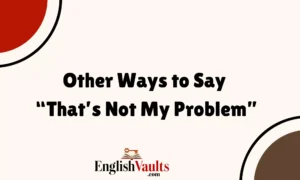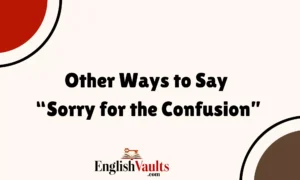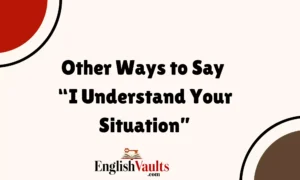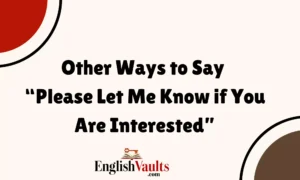In professional and personal settings, saying “I don’t know” might sometimes feel inadequate or even uncomfortable. Whether you’re addressing a colleague, a client, or a friend, finding alternative ways to express uncertainty can enhance your communication skills, foster a positive image, and encourage constructive dialogue. This article explores 25 other ways to say “I don’t know,” offering you versatile expressions that maintain professionalism and openness. By incorporating these phrases into your vocabulary, you can handle questions and situations with grace and confidence.
25 Other Ways to Say “I Don’t Know”
- I’m not sure, but I’ll find out.
- Let me check on that and get back to you.
- I need to look into that further.
- I’ll need to verify that information.
- That’s a good question; I’ll look into it.
- I’m not certain at the moment.
- I’ll have to double-check and get back to you.
- Let me investigate that for you.
- I don’t have that information right now.
- I’ll get back to you with the details.
- Let me find out and I’ll let you know.
- I need to research that a bit more.
- I’ll need to ask someone who knows.
- I’m not equipped to answer that, but I’ll find out.
- I’ll find the answer and inform you.
- I don’t have an answer for you right now.
- I’ll need to gather more information.
- I need more time to think about that.
- I can’t say for certain right now.
- I’ll get back to you once I know more.
- That’s something I need to find out.
- I’ll look into it and get back to you.
- I’m unsure, but I’ll make sure to find out.
- I need to confirm that with someone else.
- I don’t have that answer, but I’ll find out for you
1. I’m not sure, but I’ll find out.
Scenario: Responding to a Client’s Query
When a client asks about a specific feature of a product you’re not familiar with, it’s best to acknowledge your uncertainty and offer a solution.
“Thank you for your question about the new software update, Leo. I’m not sure, but I’ll find out and get back to you with the details by tomorrow.”
This response shows your willingness to help and ensures the client that you are taking their inquiry seriously.
2. Let me check on that and get back to you.
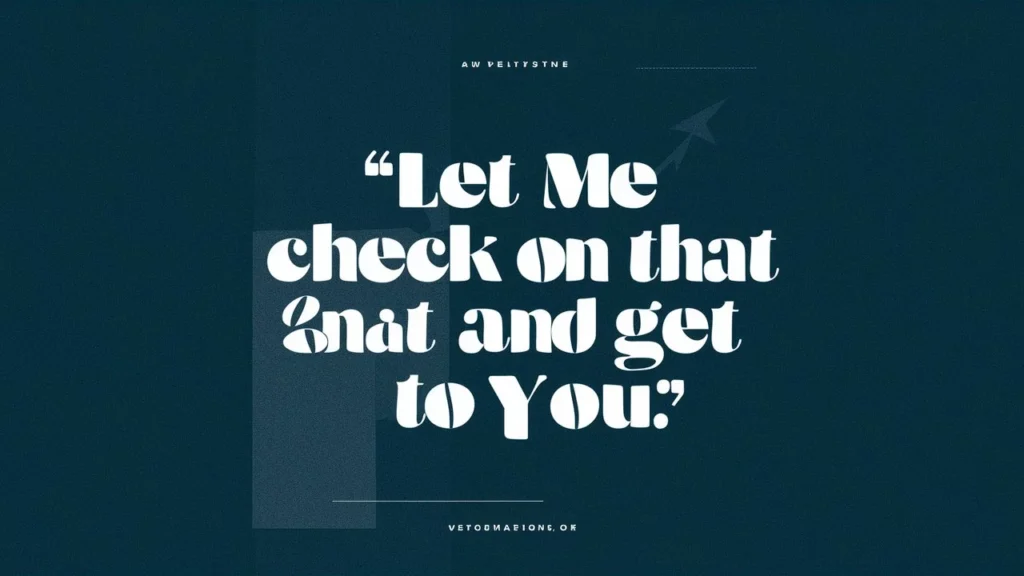
Scenario: During a Team Meeting
If a team member asks for specific statistics or information you don’t have at hand, this is a good way to respond.
“That’s a great question about last quarter’s sales data, Leo. Let me check on that and get back to you later today.”
This shows that you value the question and are committed to providing accurate information.
3. I need to look into that further.
Scenario: Discussing Technical Details
When asked about the specifics of a technical issue you haven’t explored fully, use this phrase.
“Leo, regarding the server downtime yesterday, I need to look into that further before giving you a precise answer.”
This indicates your attention to detail and thoroughness.
4. I’ll need to verify that information.
Scenario: Verifying Policy Details
If someone asks you about company policy or procedural details, and you want to ensure accuracy:
“That’s an important aspect of our policy, Leo. I’ll need to verify that information and will update you shortly.”
This demonstrates your commitment to providing correct information.
5. That’s a good question; I’ll look into it.
Scenario: During a Q&A Session
When faced with an unexpected question during a presentation:
“Leo, that’s a good question; I’ll look into it and provide an answer by the end of the day.”
This keeps the audience engaged and shows your proactive approach.
6. I’m not certain at the moment.
Scenario: Spontaneous Discussion
During an impromptu discussion where you need more information:
“Leo, I’m not certain at the moment. Let me gather more details and get back to you.”
This response maintains transparency and honesty.
7. I’ll have to double-check and get back to you.
Scenario: Confirming Deadlines
If you’re unsure about a project’s deadline:
“Leo, I’ll have to double-check and get back to you with the exact timeline.”
This ensures you provide accurate and reliable information.
8. Let me investigate that for you.
Scenario: Resolving Customer Issues
When a customer inquires about an unresolved issue:
“Thank you for bringing this to my attention, Leo. Let me investigate that for you and I’ll provide an update as soon as possible.”
This shows your dedication to resolving the issue.
9. I don’t have that information right now.
Scenario: Financial Inquiry
When asked about specific financial details you’re not currently aware of:
“Leo, I don’t have that information right now, but I’ll look it up and get back to you.”
This keeps the conversation honest while promising follow-up.
10. I’ll get back to you with the details.
Scenario: Project Details
If someone asks for detailed information about a project phase:
“Leo, I’ll get back to you with the details once I’ve reviewed the project plan.”
This approach maintains professionalism and ensures you deliver precise information.
11. Let me find out and I’ll let you know.
Scenario: New Product Information
When inquired about a feature of a newly launched product:
“Leo, let me find out and I’ll let you know the specifics by tomorrow morning.”
This shows your commitment to providing the best information possible.
12. I need to research that a bit more.
Scenario: Technical Specifications
When asked about detailed technical specifications you’re not fully versed in:
“Leo, I need to research that a bit more before providing an answer.”
This highlights your dedication to accuracy and thoroughness.
13. I’ll need to ask someone who knows.
Scenario: Complex Queries
For questions outside your expertise:
“Leo, I’ll need to ask someone who knows more about this topic and get back to you with an accurate answer.”
This ensures the information provided is accurate and reliable.
14. I’m not equipped to answer that, but I’ll find out.
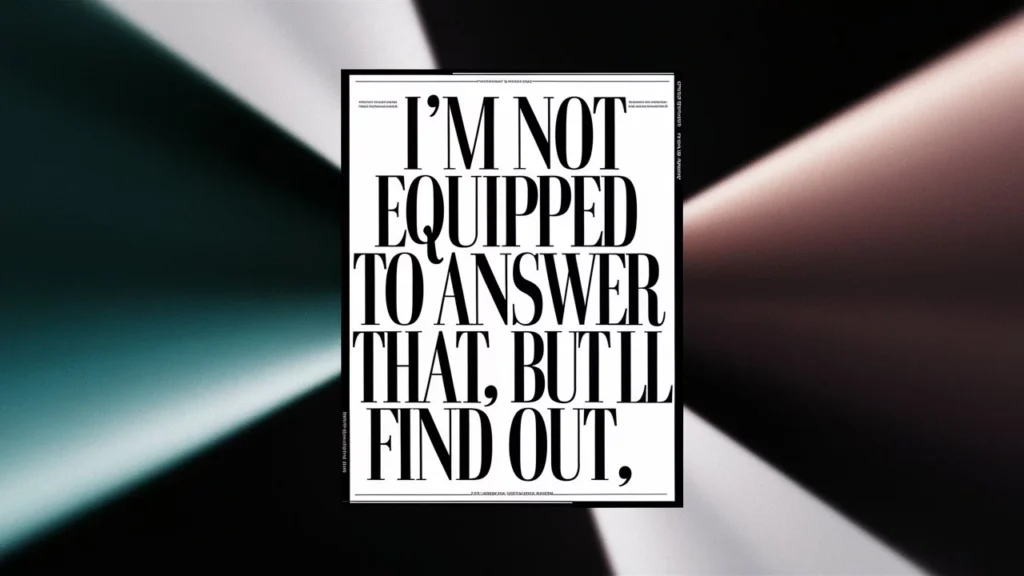
Scenario: Specialized Knowledge
When asked about specialized knowledge you don’t possess:
“Leo, I’m not equipped to answer that, but I’ll find out from our specialist and update you.”
This shows you value the inquiry and are willing to go the extra mile.
15. I’ll find the answer and inform you.
Scenario: Policy Changes
When questioned about recent policy changes:
“Leo, I’ll find the answer and inform you as soon as possible.”
This keeps the communication open and responsible.
16. I don’t have an answer for you right now.
Scenario: Urgent Queries
For immediate queries where you need more time:
“Leo, I don’t have an answer for you right now, but I’ll get back to you shortly.”
This response is straightforward and ensures follow-up.
17. I’ll need to gather more information.
Scenario: Data Requests
When asked for detailed data you’re not currently equipped with:
“Leo, I’ll need to gather more information before I can give you a comprehensive answer.”
This indicates a methodical approach to responding.
18. I need more time to think about that.
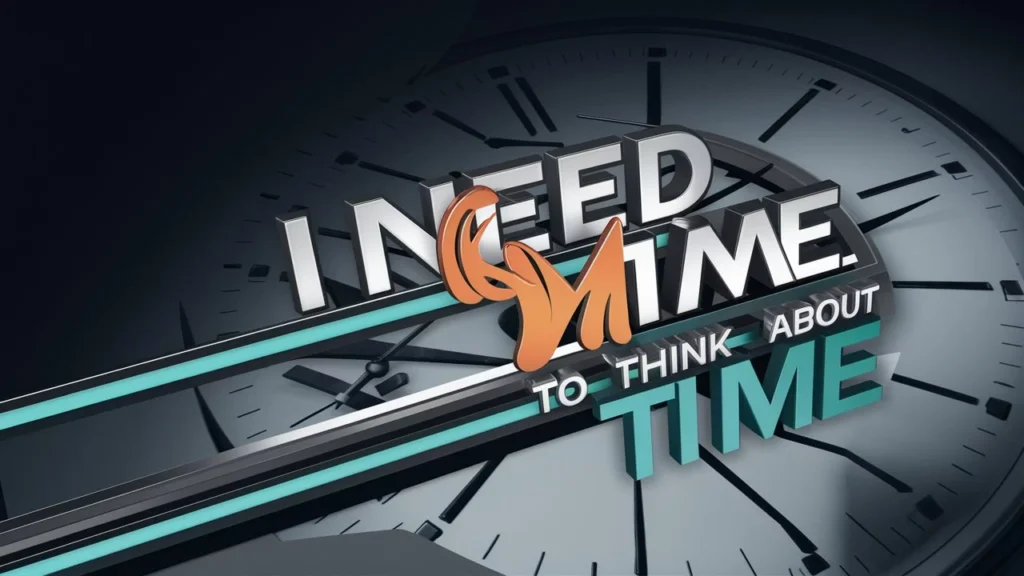
Scenario: Strategic Decisions
For queries requiring careful consideration:
“Leo, I need more time to think about that and I’ll get back to you with a thoughtful response.”
This shows your commitment to making well-informed decisions.
19. I can’t say for certain right now.
Scenario: Uncertain Outcomes
When the outcome is not clear:
“Leo, I can’t say for certain right now, but I’ll look into it and update you as soon as I know more.”
This keeps the conversation realistic and honest.
20. I’ll get back to you once I know more.
Scenario: Investigative Queries
For inquiries requiring thorough investigation:
“Leo, I’ll get back to you once I know more about this situation.”
This approach is honest and sets clear expectations for follow-up.
21. That’s something I need to find out.
Scenario: Future Projections
When asked about future projections or plans:
“Leo, that’s something I need to find out and I’ll let you know once I have the information.”
This response shows your willingness to research and provide accurate answers.
22. I’ll look into it and get back to you.
Scenario: Policy Clarification
When needing to clarify policy details:
“Leo, I’ll look into it and get back to you with the correct information.”
This keeps the conversation professional and reliable.
23. I’m unsure, but I’ll make sure to find out.
Scenario: Project Timelines
For inquiries about project timelines you’re not certain about:
“Leo, I’m unsure, but I’ll make sure to find out and provide you with the correct timeline.”
This demonstrates your commitment to providing accurate details.
24. I need to confirm that with someone else.
Scenario: Team Decisions
When asked about decisions made by other team members:
“Leo, I need to confirm that with someone else and I’ll get back to you with the final answer.”
This ensures you provide verified and correct information.
25. I don’t have that answer, but I’ll find out for you.
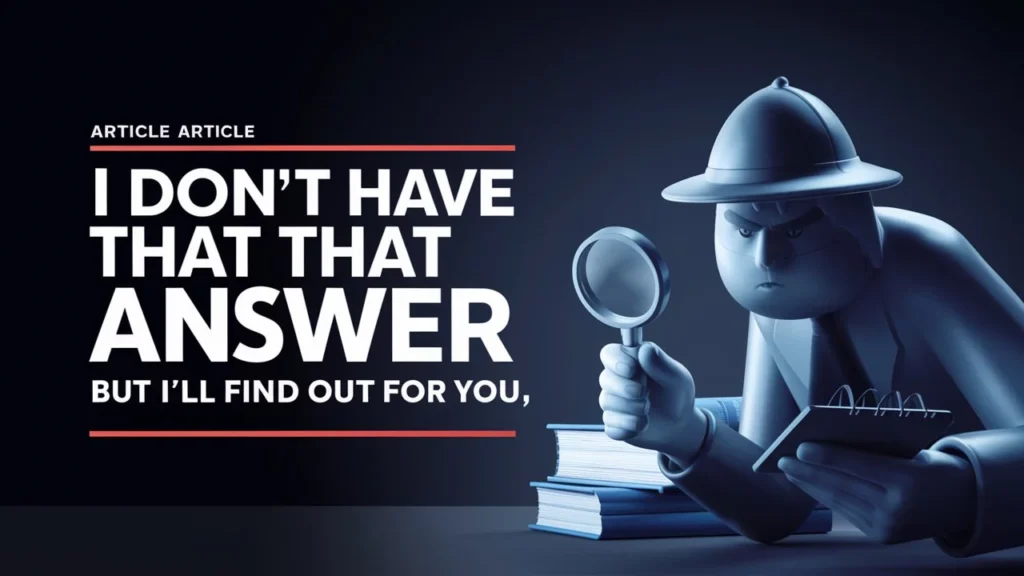
Scenario: Customer Inquiries
When a customer asks about something you’re unsure of:
“Leo, I don’t have that answer, but I’ll find out for you and get back to you shortly.”
This shows your dedication to customer service and accuracy.
These 25 alternatives provide a variety of polite and professional ways to express uncertainty, each tailored to different scenarios to maintain clear and effective communication
